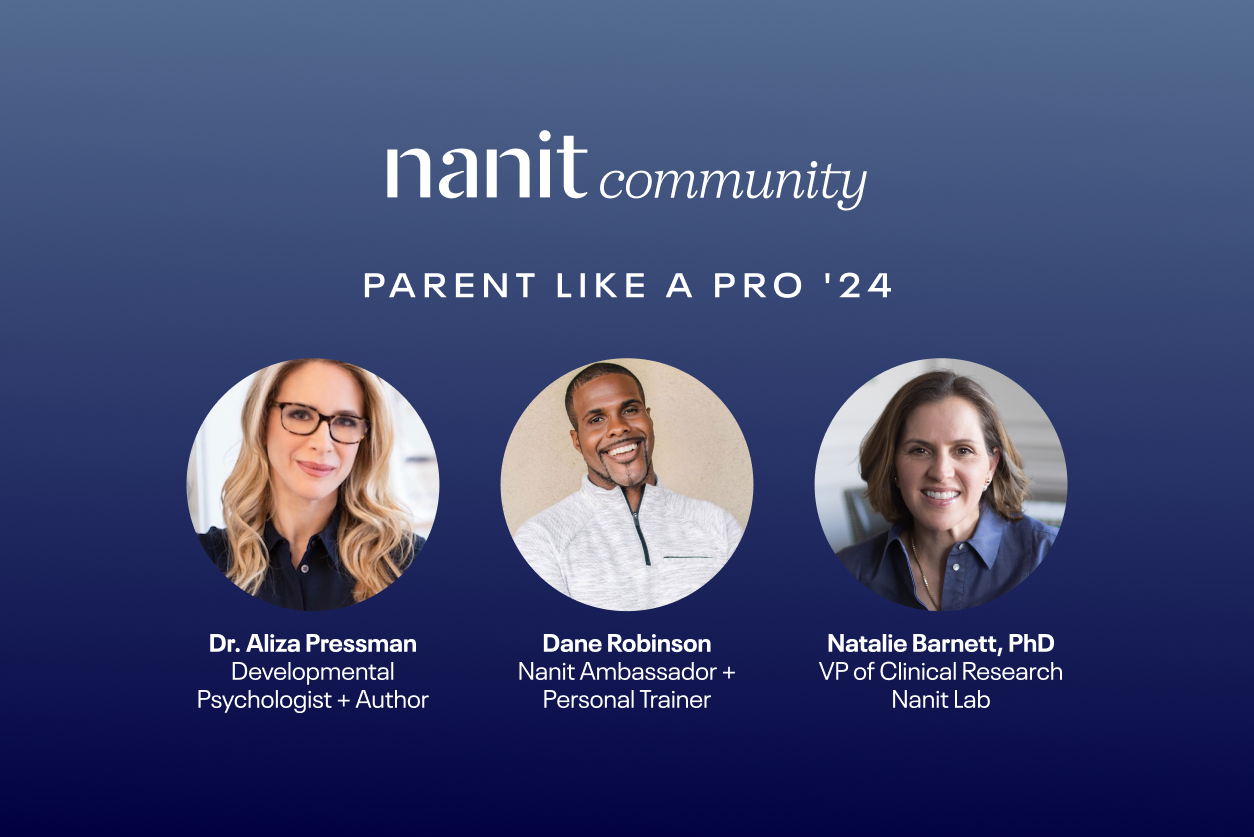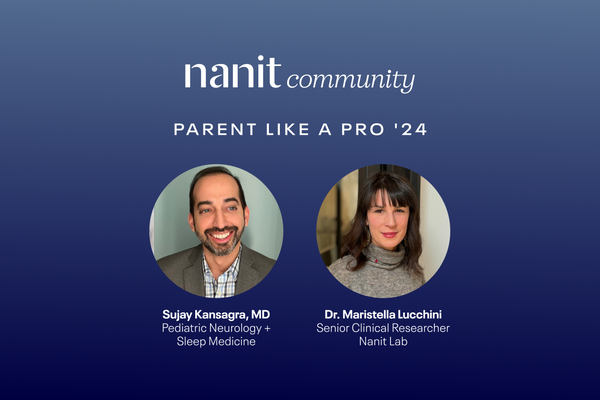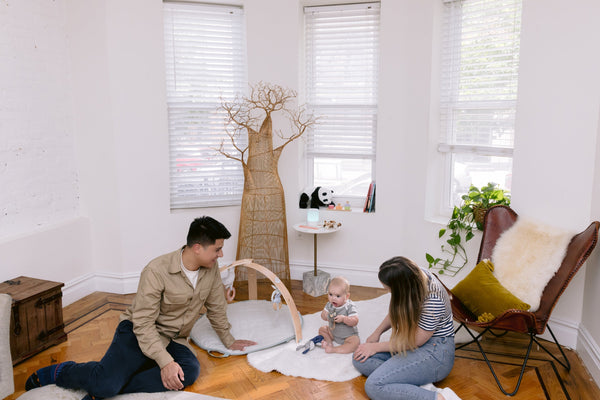Parenthood is an incredible journey, but it’s also really overwhelming. For new parents, especially, navigating the endless stream of conflicting advice, coupled with sleepless nights, and constant firsts - it often feels like every time we think we’ve got “it,” it totally changes.
That’s why Nanit is thrilled to bring you our Parent Like a Pro Summit, where Nanit’s experts and ambassadors come together for curated conversations about sleep, parenting, and more. Think of it like that expert best friend in your ear who’s got the answers to your most profound questions before you even know what to ask.
In case you missed it, we’re breaking down the need-to-know details from each chat. First up? Developmental psychologist and author Dr. Aliza Pressman, Nanit Ambassador Dane Robinson, and Nanit Lab's Dr. Natalie Barnett share an engaging chat around the concept of parenting confidently, applying Dr. Aliza's five principles of parenting, straight from her new book, The Five Principles of Parenting. These tentpoles include Relationships, Reflection, Regulation, Rules, and Repair, which serve as a framework to guide parents in their parenting decisions, as well as encourage them to let go of perfection, build resilience in themselves and their kids, and parent more confidently and mindfully.
On perfectionism
“Even though it's so intuitive to want to be perfect, fight the urge and give yourself grace. Not only is it impossible, the science shows it's better for your kids for you to be imperfect. You can be excellent, you can be conscientious, but perfection in the context of parenting is counterintuitive. It doesn't serve our kids.” - Dr. Aliza
On the power of repair between parents and children
“In order for relationships to be strong and stable, you have to have moments of disconnection to come back together and repair.”- Dr. Aliza
On prioritizing sleep as a parent
“Consistency and self-care are key. It makes you that much better as a caregiver. Stop shooting for perfection, but create predictability where you can.” - Dr. Natalie
On the differences between childhood stresses
“Positive stress is not harmful and a positive outcome will come from it. An example is getting rid of a pacifier or introducing a new sibling.
Tolerable stress are things that are really hard but you can survive them because you have someone next to you who is here for you. This builds resilience over time and gives kids the capacity to know they can bounce back.
Toxic stress is a horrible thing you would never wish upon everyone - an example being extreme poverty. We don’t want any of these, but even if you have one person who cares for you, you have buffered the impact of toxic stress.” - Dr. Aliza
On the steps new parents can take to connect to their children
- Take a breath for ourselves, so they can feel our ease.
- Get at eye level and make eye contact. For babies, follow their gaze. It’s a window into what their attention is on. You don't need to separately grab their attention.
- Speak “Parentese” to them - the high pitched sing-songy voice that builds connection.
On the power of self-awareness as a parent
“When I’m super stressed, my mantra is “What am I feeling? Why am I feeling it? I stop and pause and take a deep breath.” - Dane
On the importance of self-parenting
“Pay attention to how you speak to yourself. Think about a loving voice, and use that in your head. We can re-parent ourselves by being the parent we didn't have, or accessing the parent we did have. This soothes our nervous system. You can also speak to yourself in the third person - it helps you feel more empathy when you speak to yourself that way.” - Dr. Aliza








































